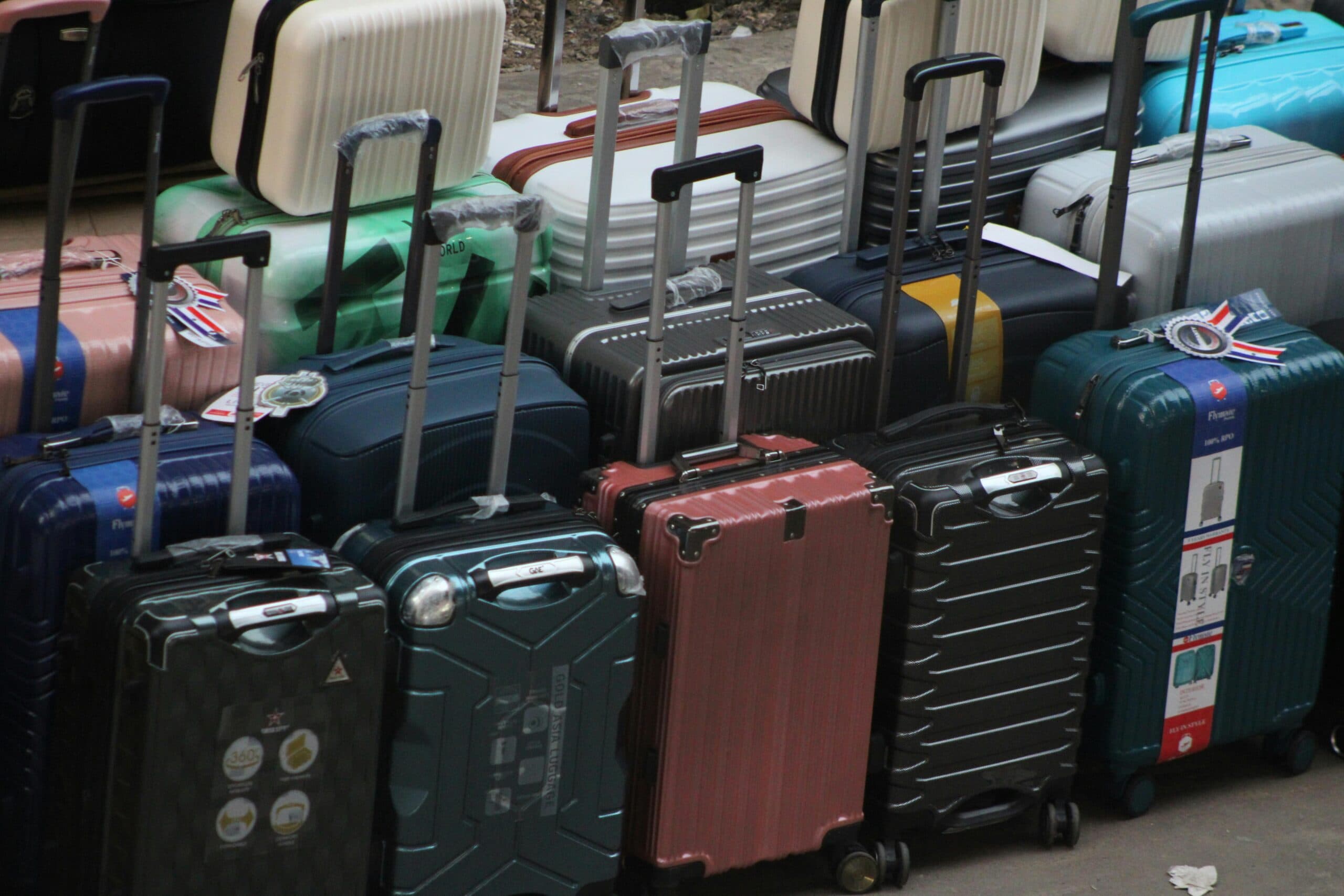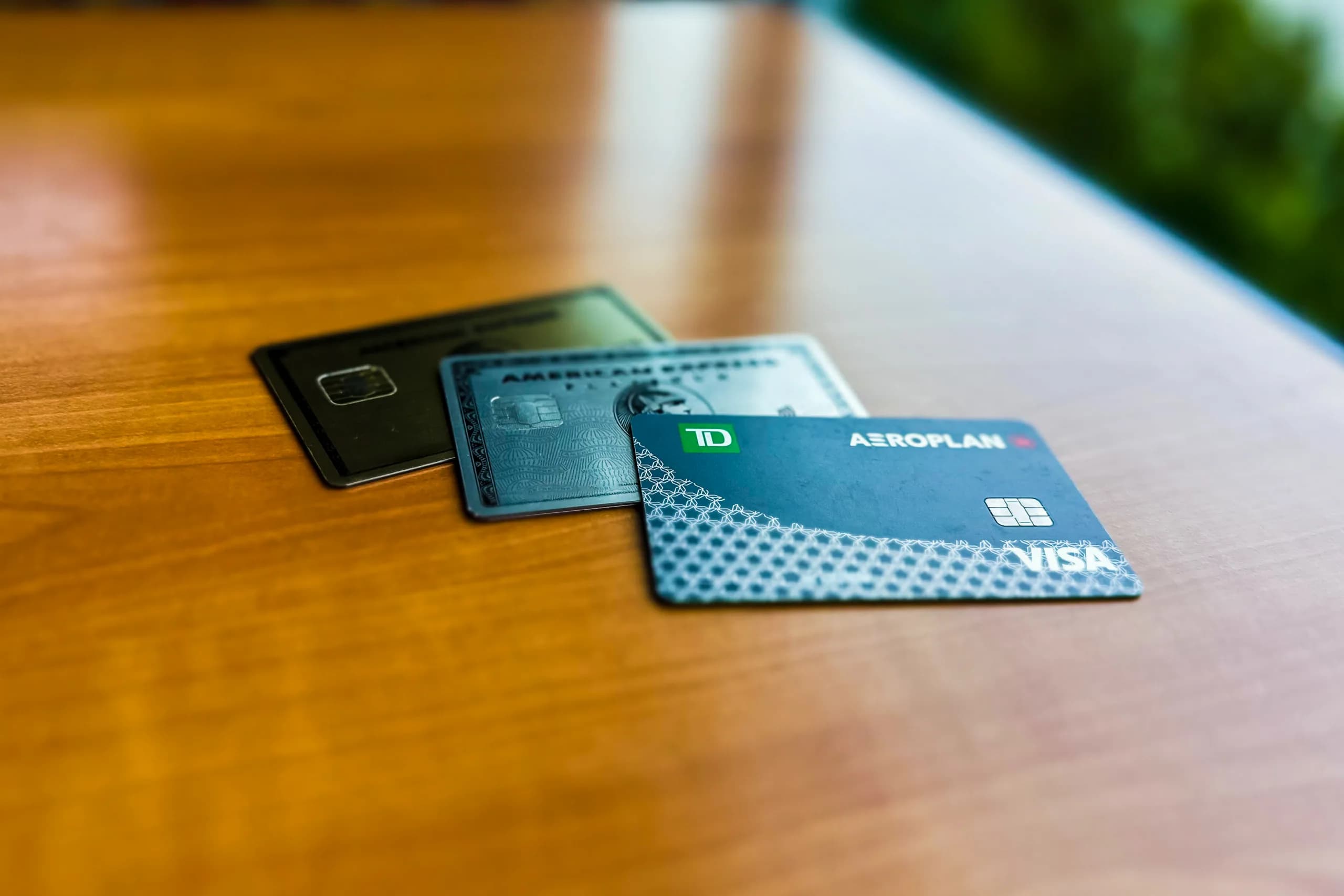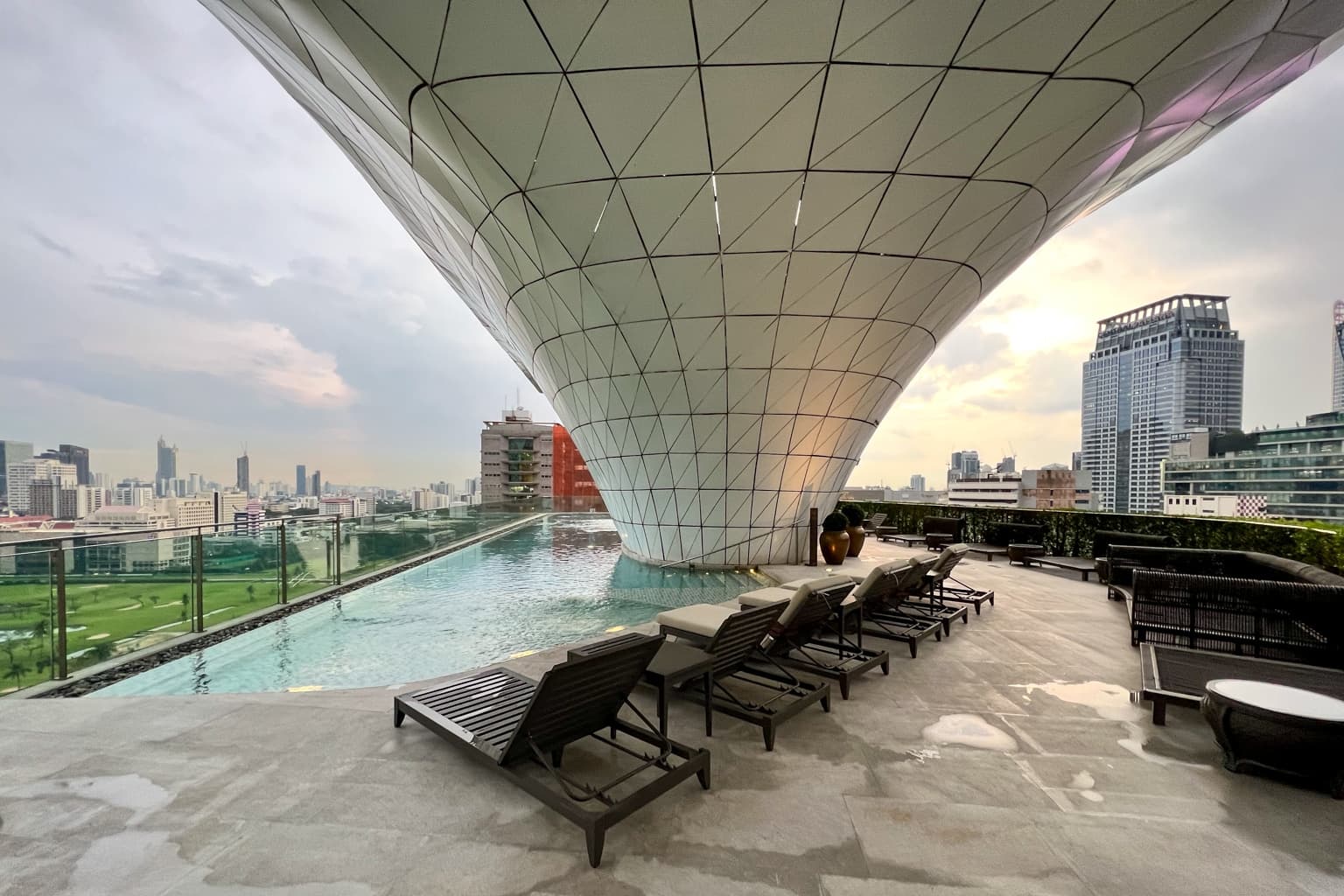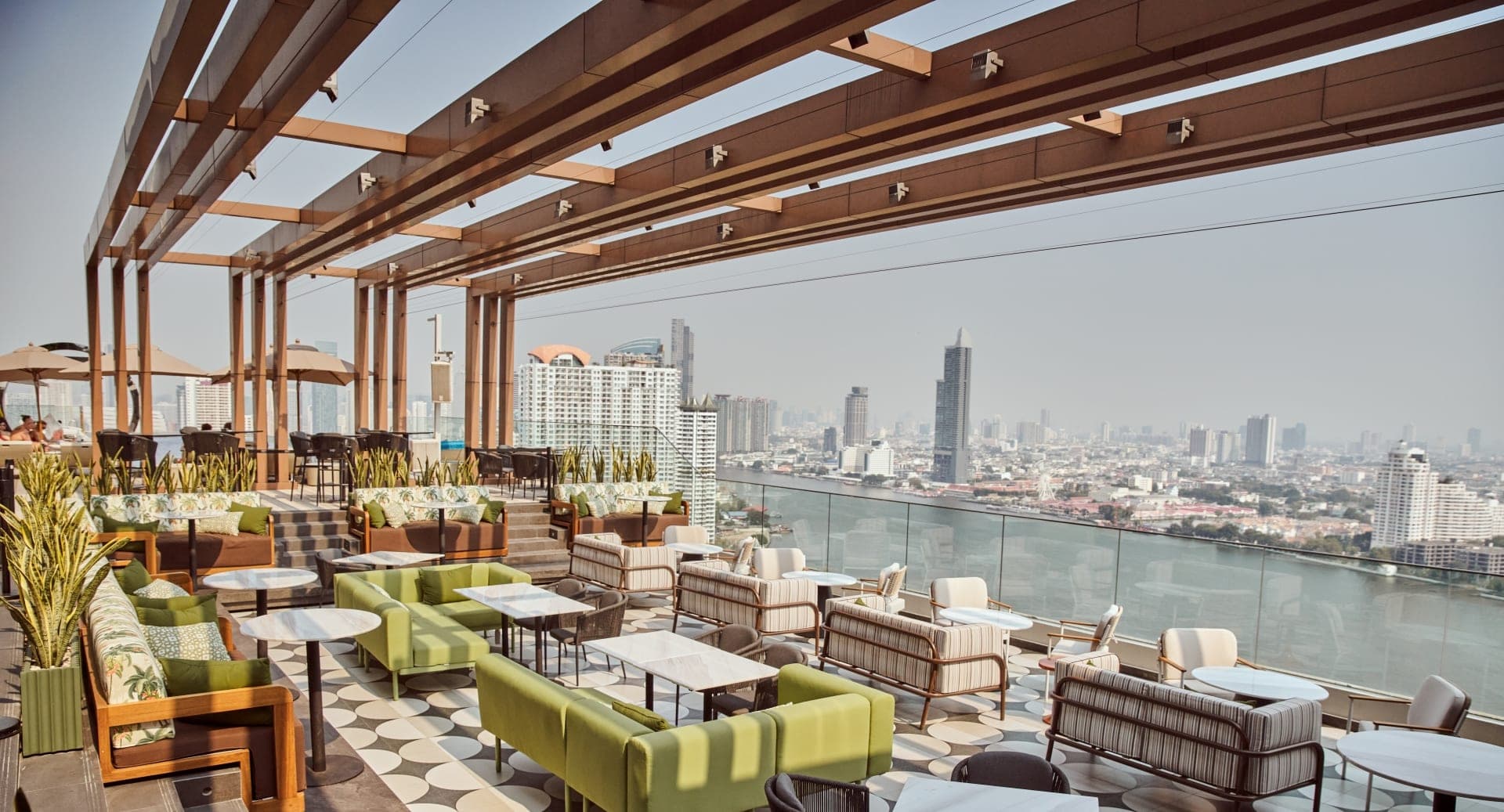24-Hour Layover: Tallinn

I was rather spontaneous in planning the tail end of my European adventure, having held off on booking any flights until three days before I was scheduled to come back to Toronto.
Once I had finally decided to fly LOT Polish Airlines business class back from Warsaw, I then needed to decide where to spend the 24-hour window before the flight that remained open in my travel schedule.
I had already visited Warsaw a few years back, so I decided to go somewhere not too far from there. Having never before set foot in the Baltic states, a day trip to Tallinn, Estonia quickly became an attractive proposition, especially as a few friends had recommended it as a beautiful place that’s small enough to explore within a day or two.
Arriving in town on the 11am Wizz Air flight from London Luton, we took the tram to the Old Town boundary and made our way to the Hotel Telegraaf on Vene Street. After a quick nap to recharge our batteries, it was time to step outside and discover the charms of Old Town…
1pm | Old Town Tallinn
Once you’ve travelled across Europe a fair bit, you find that the various Old Towns begin to blend into one another, and that there isn’t really much to distinguish one city’s cobblestone streets and medieval buildings from the other.
Despite feeling this disillusionment ever since backpacking through Europe in 2015, I’m happy to say that Old Town Tallinn was the exception to the rule. The historic area is exceedingly well-preserved since the 13th century, standing out as one of the few medieval town centres of Europe that has never been razed or pillaged.
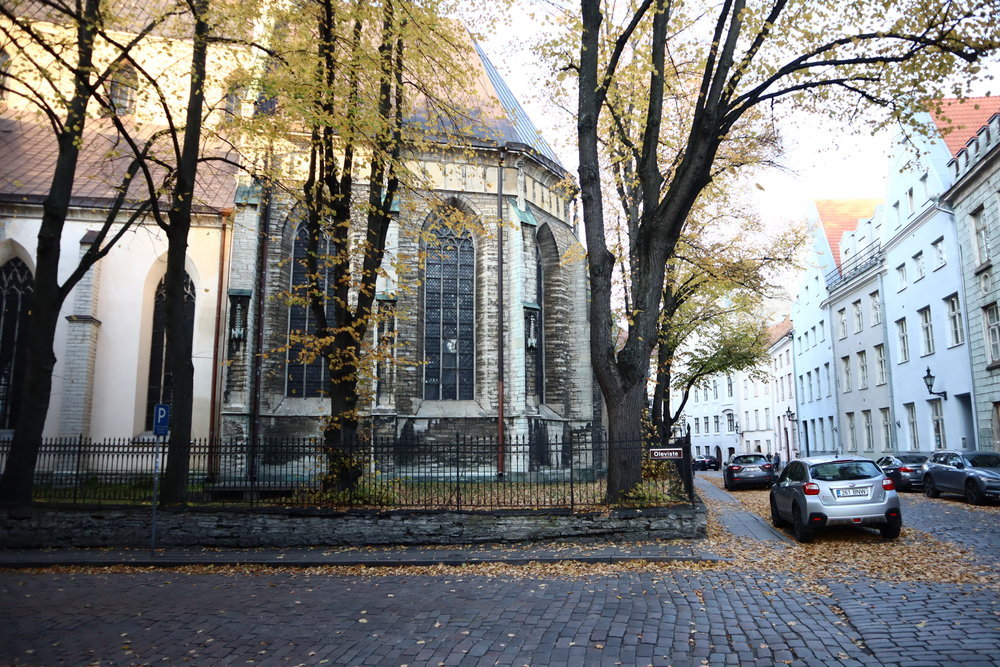
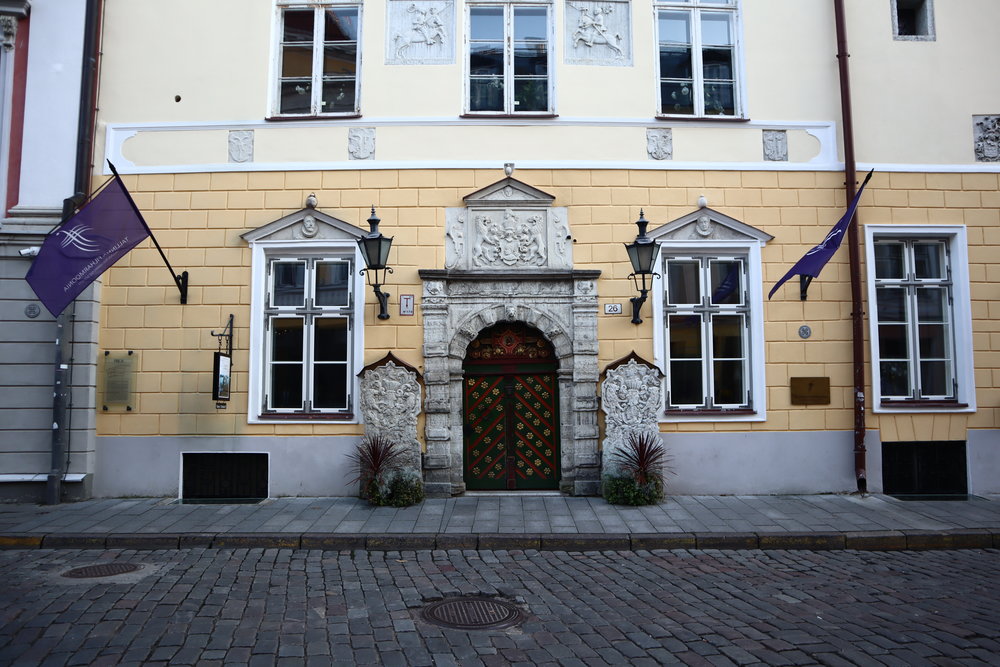
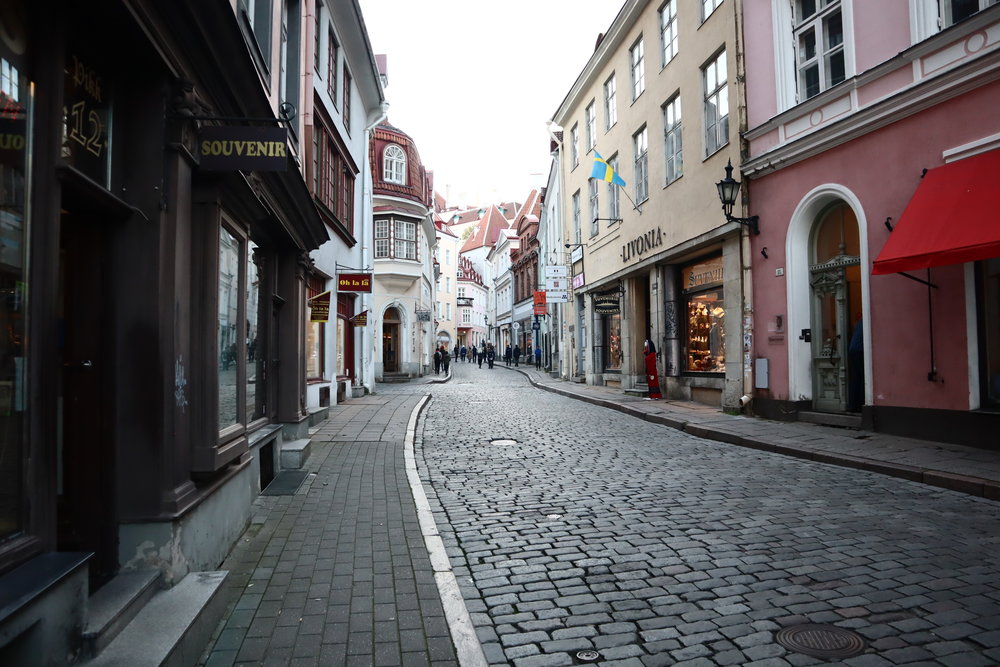
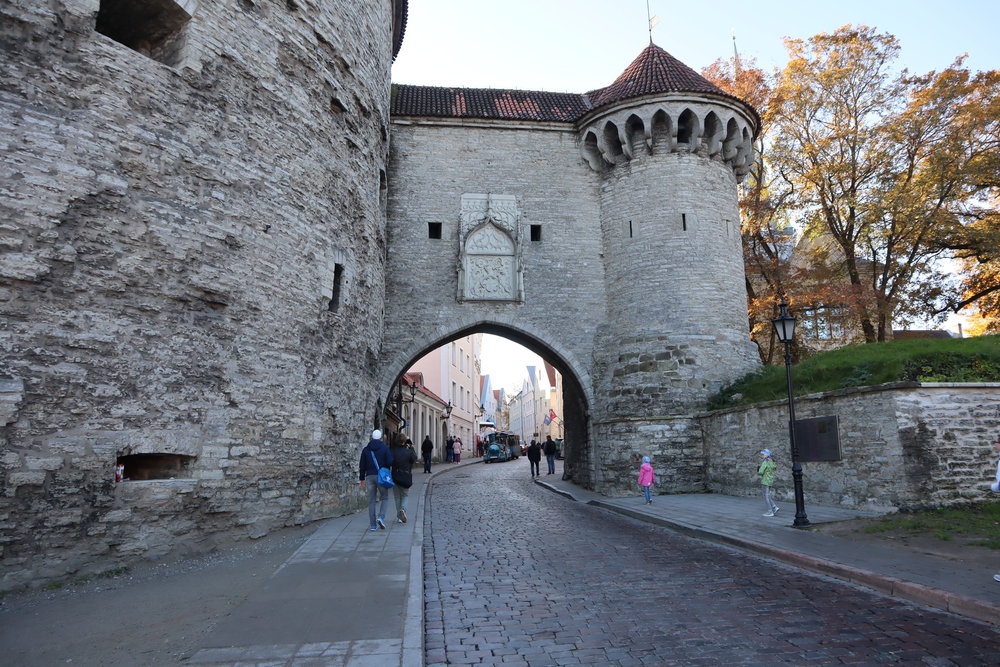
The towering church spires and brightly-coloured Gothic buildings channel the immense wealth that has flowed through Tallinn over the centuries, with the Estonian capital having played host to settlers and merchants from Germany, Denmark, Russia, and many more corners of Europe ever since its humble beginnings as a member of the Hanseatic League in 1205.
As you wander, you’ll pass through the Viru Gate, the historic entrance to the city on its eastern boundary and by far the busiest stretch of cobblestone street. Once you head deeper into Old Town, the terrain becomes more hilly and the streets more maze-like, and with the beautiful fall foliage providing a magical backdrop, it was truly a pleasure to get lost among the twists and turns and find ourselves back where we started on more than one occasion.
There always ought to be a destination in mind, though, and St. Olaf’s Church on the northern end of Old Town is well worth visiting, especially for the sweeping city views from its tower.


The €3 admission cost is well worth it; my only regret is that we went up there when the sun was setting and therefore shining into our eyes as we gazed across the rest of Old Town to the south. If at all possible, I’d say that a morning visit to St. Olaf’s Church would be ideal.

View from St. Olaf’s Church
As you make your way down from St. Olaf’s Church in the north, you’ll pass by quite a few small museums within the distinctive merchant houses, which you can duck into should they tickle your fancy. We checked out the Ex-KGB Headquarters to get a quick understanding of the city’s history during the times of Estonia SSR, when the country was a republic within the Soviet Union.
I was also quite interested in the Estonian History Museum in the centre of town, but we had to make the most of the remaining daylight and head towards…
3pm | Toompea Hill
Toompea Castle, in the southwestern corner of Old Town, is a significant historic and modern-day seat of power within Estonia, having been constructed by the Danes when they founded the city in 1219 and now serving as the seat of the Estonian Parliament.
The castle is open to visitors between 10am and 4pm, so you might wish to head up here earlier in the day if you’re interested in scoping it out. Jessica and I have wandered through a fair few hilltop castles across our travels over the years, and have found that they’re altogether quite similar, so we were content to simply make our way up Toompea Hill and admire the views instead.

Toompea Hill
Besides the castle, the hill also plays host to two significant sites of religious worship: the Russian Orthodox Alexander Nevsky Cathedral and the Catholic-turned-Lutheran St. Mary’s Cathedral, which is also the oldest church in Tallinn. The ornate domes and sparkling crosses of the Alexander Nevsky are indicative of its construction during the more recent Soviet era, standing in stark contrast against the faded-white and more understated exterior of St. Mary’s, which has stood since the Middle Ages.

Alexander Nevsky Cathedral
The contrasting cathedrals make for the perfect setting to reflect on Estonia’s surprisingly diverse history, and indeed modern-day makeup as well – even today, the country’s identity lies somewhere at the crossroads of being a Nordic state alongside Finland (with whom they share close ethnolinguistic links) and a Baltic state alongside Latvia and Lithuania (with whom they enjoy close economic relationships and a shared history as part of the USSR).
The leafy foliage and sweater weather provided an incredibly tranquil atmosphere up here on Toompea Hill when we visited in early October, but to be honest, it’s the kind of place that looks beautiful no matter the season. As you’re making your way down from the hill, take a moment to relax on the steps of the old city walls and enjoy the fairytale hilltop views.

Views from Toompea Hill
6pm | Dinner & Entertainment
You can’t really look further than Old Town for your nightly entertainment. Head over to Raekoja plats, the town square in the very middle – I’d say that this is the one spot in Tallinn’s Old Town where the numerous bars and restaurants lined up along all four sides do indeed render it somewhat indistinguishable from the various other Old Towns across Europe.

Old Town Square, Tallinn
If you’re in the mood for traditional Estonian fare, like salted herring, sauerkraut soup, and various types of smoked and roasted meats, then the Golden Piglet Inn in the Hotel St. Petersbourg gets rave reviews. There’s also Bocca, a highly-rated trendy spot bringing high-quality Italian cuisine up here to the Baltics.
For those on a budget (or simply those with less refined cravings in the moment), I found the burgers at Burger & Ribi on the side of the market square to be very enjoyable, and the ambience within the restaurant quite nice as well.
Make sure to try some of the Estonian beer as well – either Saku or A. Le Coq, of which I found the latter to be slightly more palatable. While I can’t say there’s much to distinguish them from other European beers I’ve tried, it’s always nice to sample some of the local brew wherever you go.
After dinner, you won’t have any trouble finding the numerous bars and pubs within Old Town, where the nightlife is surprisingly vibrant for a place of Tallinn’s modest size. Otherwise, if you’d like to get some rest and prepare for an early morning, feel free to pick up a few more bottles of A. Le Coq from the supermarket and retreat to the hotel for a relaxed night in.
7am | Freedom Square & Kadriorg Palace
While most of what makes Tallinn special lies within the walls of the medieval city, there’s plenty that sets it apart as well in the more modern parts of town. If you’re staying in the Old Town, you’ll want to walk towards the southern boundary to check out Freedom Square. This is the “classic” main square of the city, marked by the central Victory Column commemorating the Estonian War of Independence, another significant moment in the city’s storied history.

Freedom Square
While Old Town Tallinn is best explored on foot, the Tallink tram system provides excellent connectivity around the rest of the city, and from the Freedom Square it’s a quick ride on Line 3 up to the Kadriorg neighbourhood.
Here, you’ll find the Kadriorg Palace, a gorgeous palace and park complex that served as the summer residence for Tsar Peter the Great and other noblemen during the times of Russian rule.

Kadriorg Palace
Art enthusiasts will also want to venture beyond the park to check out the KUMU, the Estonian National Art Museum. While Estonia might not be the foremost artistic hotspot on everyone’s minds, taking a walk through the galleries of Estonian art does provide another perspective to the ever-changing history of this nation, especially when you observe the rise and fall of socialist themes throughout the more recent few centuries.
11am | Kalamaja
Lastly, I’d highly recommend making your way up to the Kalamaja neighbourhood, which is one of the oldest built-up suburbs of Tallinn outside of the Old Town. It’s a bit of a trek from the Kadriorg quarter, although Uber is cheap in the city; meanwhile, if you had instead opted for a lazy morning in your Old Town hotel, you can make your way straight out of the northern city gates and enjoy a brisk 10-minute walk over.

Walk from Old Town to Kalamaja District
As I’ve observed in many cities around the world, whenever you have an old and slightly run-down neighbourhood sitting by the water, you’re likely to have rejuvenation and gentrification at some point.
That’s exactly what’s going on here: the wooden one-storey buildings, which once housed the workers who plied their trade in the ports and fish markets around here, are giving way to low-rise apartment blocks. Meanwhile, the waterfront is getting a makeover, with all sorts of new buildings coming up, their glass facades reflecting the glimmering waters of Tallinn Bay.

Kalamaja waterfront
Tallinn is one of Europe’s growing hotspots for young entrepreneurs and digital startups, so I’d expect construction like this to become the norm, not the exception, over the coming years.
Nevertheless, at the moment there’s still an element of quietness to the Kalamaja district as its new identity begins to take shape, and a morning stroll through the beautiful Kalamaja Park adjacent to the waterfront makes for the perfect way to bid farewell to this quaint Baltic capital.

Kalamaja Park
Conclusion
It’s rather uncommon for travellers to make Tallinn a final destination on their trip, with many preferring to visit on a day trip from Helsinki opposite the Gulf of Finland instead, and it’s not hard to see why. In many ways, Tallinn is the perfect day-trip destination, with more than enough charm in its Old Town and vibrance in its newer developments to keep you busy for a quick 24-hour stay. I’m happy to have checked off another new country off my list, and I’ll likely be tempted to return when I visit the other Baltic and Nordic states in the future.

First-year value
$336
Monthly fee: $15.99
• Earn 1,250 points per month upon spending $750 per month for 12 months
Earning rates
Key perks
- Transfer to airline and hotel partners

Monthly fee: $15.99
• Earn 1,250 points per month upon spending $750 per month for 12 months
Earning rates
Key perks
- Transfer to airline and hotel partners


